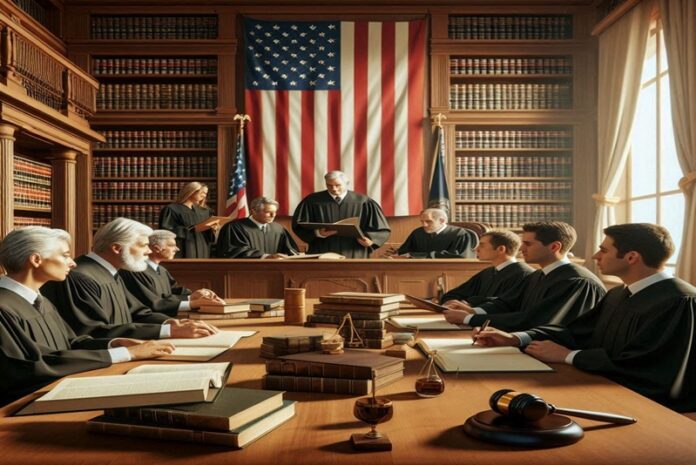The recent landmark case of Lindke v. Freed has raised important questions regarding First Amendment issues especially with respect to the relations between public officials and social media users. The case also raises the important issue of whether such posts by public officials aimed at their constituents can actually allow such officials to dictate the narrative on their posts.
Background of Lindke v. Freed
This case started when Freed, a public official in Michigan, applied for a Facebook account which he later used to comment on and talk about public issues such as COVID-19 and any local politics he saw fit.
However, he selectively blocked people from seeing his posts. One of these people who had been blocked, Brian Lindke, went on to claim that Freed’s accounts had achieved the status of being a public forum. Therefore, in Lindke’s view, the blocking of people from participation was an infringement on their freedoms protected under the First Amendment.
Rather, Lindke’s argument was that social networks should be open to all the audience’s opinions by being social networks if used by public figures for social interaction with the audience.
This position is consistent with one of the fundamental principles of First Amendment jurisprudence, which stipulates that public officials cannot exclude people from public forums because of their content.
The Court’s Ruling on “Lindke v. Freed Decision”
The court in Lindke vs Freed gratified Freed’s appeal stating that his Facebook page had not been made a government page but was operated as a routine Facebook page by Mr Freed. This meant that blocking some users was not infringing on the First Amendment by blocking free speech.
It was emphasized by the court that the social media of public officials cannot be referred to as a public forum and rather exists only as such if it is a government-issued or official channel for communication with the public.
Implications of the Decision
The Cetnrul self exists in order by kadel srovths tone for feedback surrounds this tendency.
- Division Between Role If any, And Private Activity: The present decision brings about an infringement of boundary relating to private and personal use of the social pages of officials. They can be protected from legal problems if they have other accounts for personal purposes and deal with the official’s duties.
- Limitations on the First Amendment: In terms of online social interaction, this court restricted it – claiming that Freed’s page was a personal one, hence limiting anyone the use of the First Amendment. It suggests that only if the officials are using the network in a formal context, then they are free to do so.
- Public Access to Information: Also this verdict has raised the debate of the public’s access to information with some criticism. If it is permitted for officials to block citizens who address public issues on their social accounts, there is fear that the citizens may not be able to obtain vital information further in an emergency. Concerns about the law’s ability to restrain officials’ abuse are also valid.
Conclusion
The Lindke v. Freed decision is built on the principle of how to combine First Amendment rights with the interpersonal strife that takes place in journalistic social media. It gives valuable lessons such as how to delineate between personal and official accounts, but it also leads to many questions about the modes through which public figures or officials should relate with the citizens on the internet.
With the increasing grip of social media on public opinion, this verdict will definitely anticipate other similar cases dealing with the intersection of the self-expression of a person and the responsibility of a citizen.








